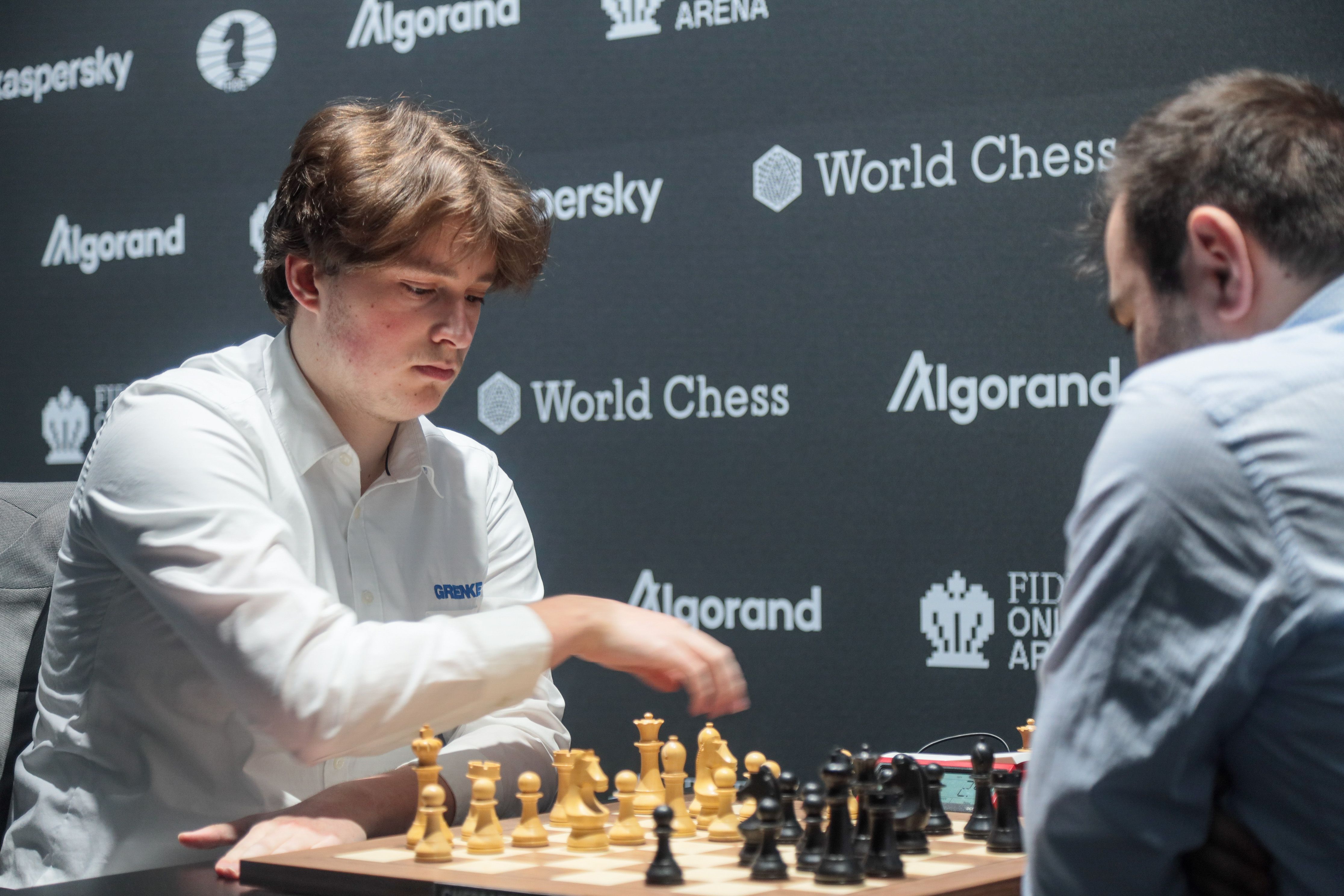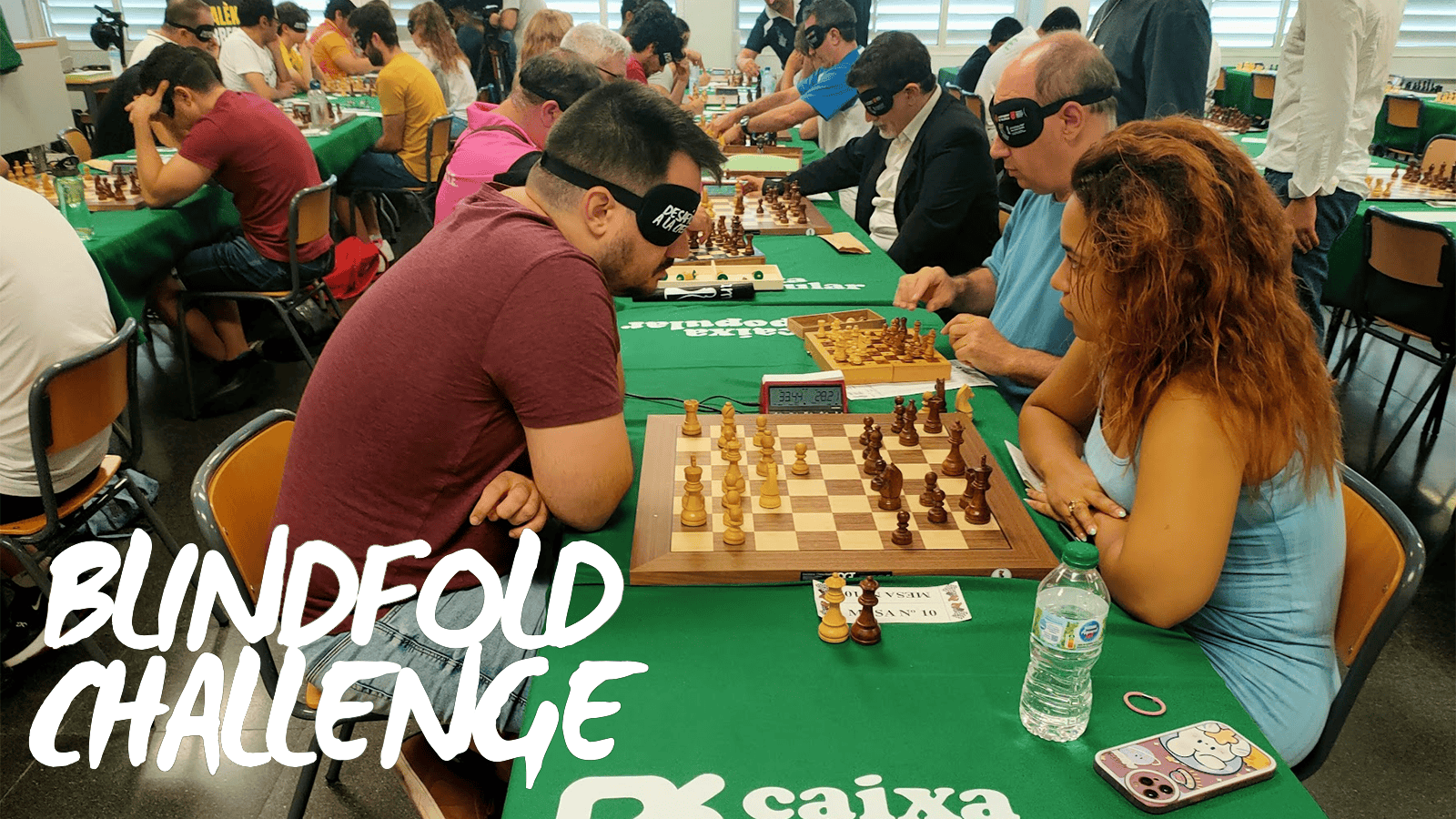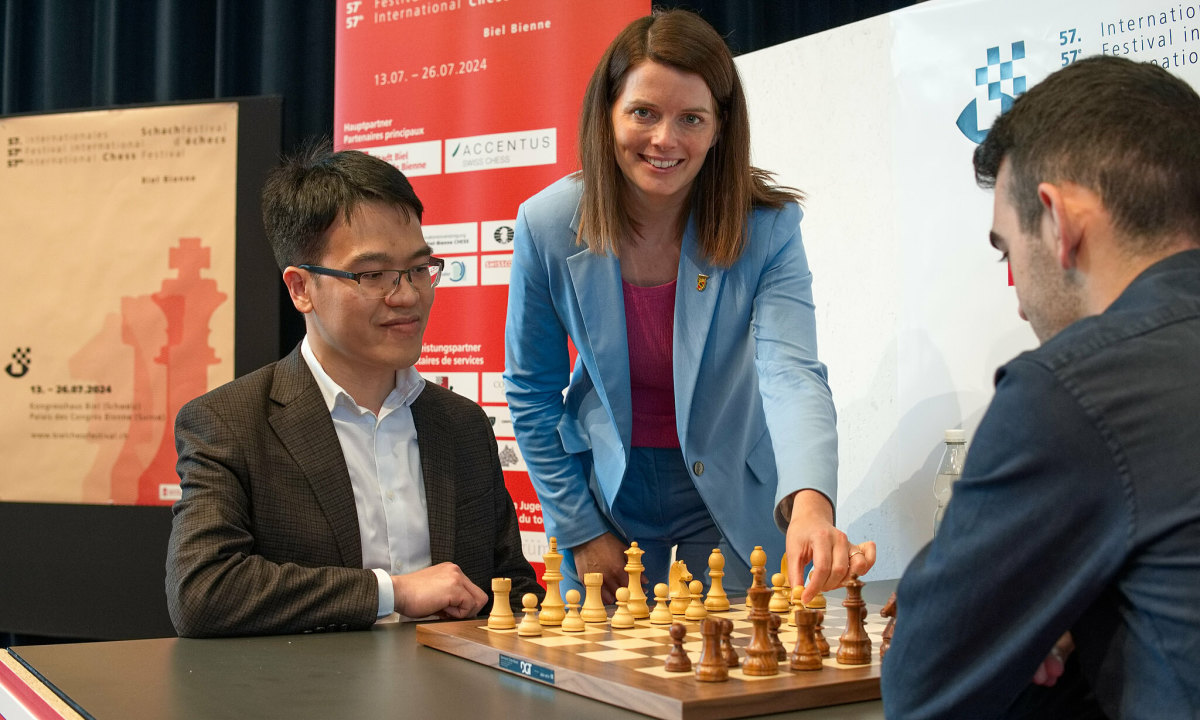Yesterday’s results at the 2022 FIDE Grand Prix third leg awarded chess fans with a bonus day of chess with two tiebreak matches on Tuesday to decide who should make it through from Groups B and C.
In Group B, GM Shakhriyar Mamedyarov narrowly lived up to his role as the favorite by winning the tiebreaker against the host country’s darling GM Vincent Keymer in a nailbiter that got decided in blitz games, where the Azeri was irresistible. From Group C, the battle stood between American GMs Sam Shankland and Wesley So, and here So proved the luckier player.
The semifinals begin Wednesday, March 29, at 6 a.m. Pacific / 15:00 Central Europe.
Group B: Mamedyarov-Keymer
The combatants of today’s tiebreaker made it there in wildly different ways. Mamedyarov played an ultra-short draw against GM Daniil Dubov, whereas Vincent Keymer played a great game to eliminate the former group leader, GM Leinier Dominguez Perez, from the tournament. What we witnessed in the tiebreaker between these two players can best be described as “Calamity in the Catalan.”
Rapid Game 1: Mamedyarov-Keymer
Clearly, Mamedyarov had a lot of energy and creativity left in the tank after yesterday’s lack of effort. In a relatively normal Catalan Opening, he first sacrificed a pawn, albeit one that he would likely recover soon enough—then he threw caution to the wind, playing 11.h4 and then 12.g4, essentially sacrificing two more pawns for a kingside attack. Interestingly, the engines completely approve of White’s idea, but to play in this fashion when so much is on the line is something out of the ordinary. Keymer, however, reacted tentatively and it did not take more than a few moves before Black was first worse and then lost.

Rapid Game 2: Keymer-Mamedyarov
How do you approach the second game when you have won the first game in a devastating fashion? There are many thoughts on how to approach such a situation. Mamedyarov chose to play the highly theoretical and ultra-sharp Botvinnik Variation of the Anti-Meran. Perhaps not the choice that most would have made. It was Keymer who first departed from the most heavily trodden paths when he played 12.h4.

He seemed to obtain an advantage from the opening, and when Mamedyarov played inaccurately, the advantage grew significantly. In the endgame, when the players had less time left on the clock, the mistakes started creeping in on both sides, both missing opportunities to make it more difficult for the other. Ultimately though, it was Mamedyarov who sent the king in the wrong direction, allowing Keymer to win the game and secure another round of games in the tiebreaker.
Blitz Game 1: Keymer-Mamedyarov
The draw had it made so that the colors would repeat from the second game.
Rather than repeating the choice of the Anti-Meran, the players went into a regular Meran Variation where Black equalized easily. One sloppy move from Keymer caused Mamedyarov’s forces to hone in mercilessly in on the white king.
Blitz Game 2: Mamedyarov-Keymer
In another Catalan, Keymer tried a different approach than in the game above, steering things in a slightly more sane direction, equalizing seemingly smoothly. Then Mamedyarov got his knight to f5, giving White a very promising-looking position, although it objectively was still okay for Black.
That became the beginning of a maddening conclusion to the game and tiebreaker where both sides had chances, though mostly for Black; mistakes happened on almost every move as the clock situation got worse and worse. It was punctuated by a massive blunder by Keymer, who then lost on the spot.
After their match, Mamedyarov was full of praise for his opponent: “I think in our pool he showed the best play … He is fighting, he’s very good and still young. I hope he will be 2800—I think he can do it. His only problem, I think, is school, university. If he can solve it somehow, he can be the very top player.”
I think in our pool [Keymer] showed the best play.
—GM Shakhriyar Mamedyarov
Indeed, Keymer has every reason to be satisfied with his performance in this event, picking up some nice scalps, extra rating points, and additional experience.

Group C: Shankland-So
The American duo Shankland & So sounds like something out of Nashville, TN, the center of the world for country music, but in Berlin, it meant two American players who had to settle who should take part in the semifinals. In the previous two legs of the Grand Prix, they each had to deal with heartbreaking scenarios. In leg one, which also took place in Berlin, Wesley So was cruising, looking like a certain group winner. Fellow American Dominguez disagreed and caught So with a last-round win to catch up to So and then surprised most of us by winning the tiebreaker.
In the second leg of the Grand Prix, Shankland was leading with one game going, GM Dmitry Andreikin against the French veteran GM Etienne Bacrot. A win would send Andreikin through, a draw would force a tiebreak between Andreikin and Shankland, while a Bacrot win would see a tiebreak showdown between Bacrot and Shankland. Bacrot was completely winning but lost in sensational fashion, and just like that both Bacrot and Shankland were out.
Rapid Game 1: Shankland-So
With the white pieces, Shankland opted for a Catalan that did not go as bananas as in the Mamedyarov-Keymer games above. After solid but passive play from So, Shankland obtained a slight advantage. However, some hesitant moves in the middlegame were countered by So’s precision and, suddenly, it was Black who was in charge. Things only got worse from there and So converted his advantage convincingly, putting Shankland in the worst possible situation ahead of game two.
Rapid Game 2: So-Shankland
Beating Wesley So can be difficult. Beating So with the black pieces, on demand, when he only needs a draw is near impossible. Yet that was the task that stood in front of Shankland when game two started. How to do it? Well, it starts by getting a playable position where So cannot vacuum the pieces of the board or drag Black down a long forced line that ends with an unwinnable position. As So has shown against GM Magnus Carlsen on multiple occasions, those options are not something if you have ambitions to beat him.

Shankland’s choice of opening was a line in the Exchange Variation in the Queen’s Gambit Declined via the Cambridge Springs Variation (albeit before Black got a chance to play …Qa5). Obviously, it was nothing special, but it led to a playable position. After precise play from So, Shankland made a radical choice, sacrificing the exchange to stir the pot. So, however, was not rattled and reached a winning position, only to make a series of odd decisions that took his game from winning to lost. It looked like Shankland was achieving the impossible, but then he missed g2-g4 from White, caging his rook on g5, essentially ending the battle as Black would be without sufficient play to carry on fighting for a win.
Heartbreak City for Shankland once more, who was understandably disappointed by his narrow misses both here and in Belgrade. Nevertheless, it will be interesting to see how So will do in the remainder of the event.
Results

All Games – Group Tiebreaks
FIDE Grand Prix Berlin is the final leg of the 2022 Grand Prix. The Berlin tournament takes place March 22-April 4. Tune in at 7 a.m. Pacific/15:00 CET each day for our broadcast.
Previous reports:
- Nakamura, Rapport In For FIDE Candidates: 2022 FIDE Grand Prix Berlin Leg 3, Round 6
- Nakamura Wins Again, Leads With Aronian: 2022 FIDE Grand Prix Berlin Leg 3, Round 5
- Nakamura Wins On Demand: 2022 FIDE Grand Prix Berlin Leg 3, Round 4
- 2022 FIDE Grand Prix Berlin Leg 3, R3: Keymer Wins, Nakamura Escapes
- 2022 FIDE Grand Prix Berlin Leg 3, R2: 8 Draws
- 2022 FIDE Grand Prix Berlin Leg 3, R1: 4 Wins, Fighting Chess
- FIDE Grand Prix 2022: All The Information





